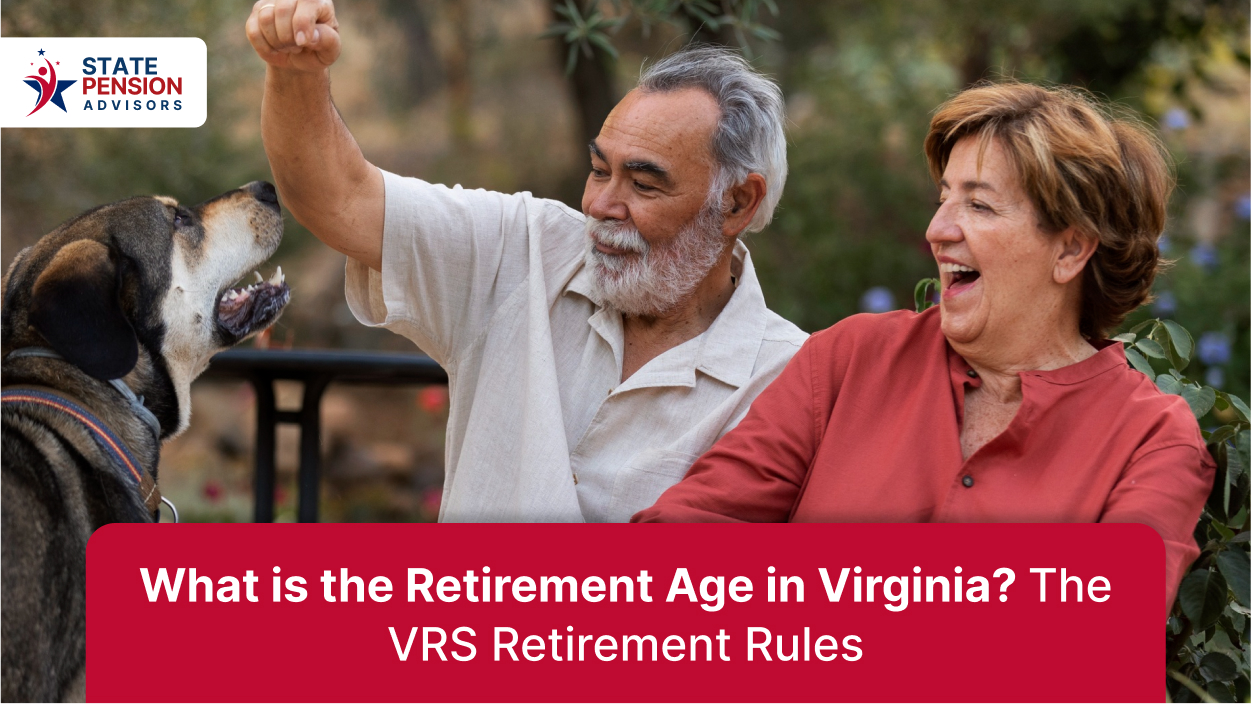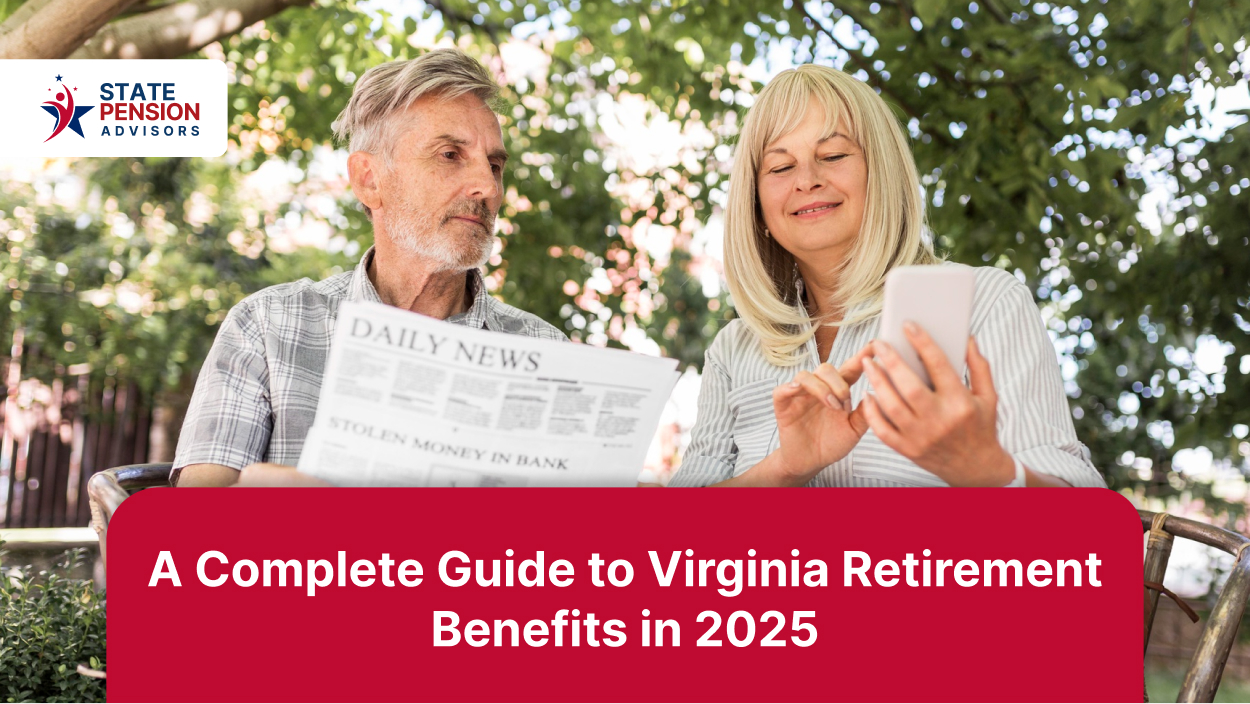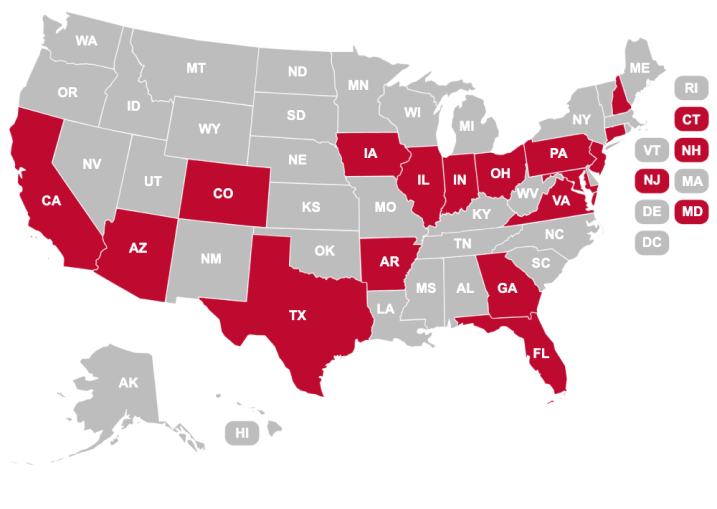What is the Retirement Age in Virginia? The VRS Retirement Rules

Retirement is a major milestone in anyone’s life, and planning for it requires understanding when you are eligible to receive benefits.
There isn’t a single retirement age in Virginia. Your retirement eligibility is determined by a combination of factors, including your Virginia Retirement System (VRS) plan, your service credit, and whether you intend to claim a full (unreduced) benefit or a reduced benefit. For a full retirement benefit, you usually need to be 65 if you’re in VRS Plan 1, or at your normal Social Security retirement age if you’re in Plan 2 or a Hybrid Plan, with at least five years of service. If you want to retire earlier, you can get a reduced benefit starting at age 55 for Plan 1 or age 60 for some other plans, as long as you have at least five years of service.
Understanding these details can help you plan your career, finances, and long-term lifestyle more effectively.
Virginia Retirement System (VRS)
The Virginia Retirement System is the state-managed retirement program for public employees. It provides retirement, disability, and death benefits to eligible employees in Virginia.
The VRS divides employees into different plans, primarily Plan 1, Plan 2, and Hybrid Plans, each with distinct eligibility criteria for retirement.
Key Factors Affecting Retirement Age in Virginia
Before diving into specific ages, it’s important to understand the factors that influence retirement eligibility:
- Service Credit
Service credit refers to the number of years you have worked in a position covered by VRS. Your total service credit is crucial in determining both the age at which you can retire and the type of benefits you are eligible to receive. The more years of service you have, the earlier you may qualify for retirement with full benefits. - Benefit Type
VRS offers two types of retirement benefits:
- Unreduced (Full) Benefit: This provides the maximum retirement payment and usually requires meeting both age and service requirements.
- Reduced Benefit: This allows you to retire earlier, but your monthly payment will be lower because it is “reduced” for early retirement.
- Normal Social Security Retirement Age
For Plan 2 and Hybrid members, your unreduced retirement age aligns with your normal Social Security retirement age. This age varies depending on your year of birth and typically ranges from 65 to 67. - Hazardous Duty Employees
Employees in hazardous duty positions (such as police officers, firefighters, or correctional officers) have different rules. They can often retire earlier due to the physically demanding nature of their jobs.
Retiremet Age for VRS Plan 1 (Older Plan)
VRS Plan 1 applies to employees who joined the system before July 1, 2010. This plan has been largely replaced by Plan 2 and Hybrid Plans for new employees, but many long-term employees are still under Plan 1.
- Unreduced (Full) Benefit
Age 65 with at least 5 years of service credit, or
Age 50 with 30 years of service credit
- Plan 1 allows employees who have served for many years to retire early at age 50 if they have a long service record. Otherwise, the standard full benefit age is 65.
- Reduced Benefit
Age 55 with at least 5 years of service credit - Plan 1 members can choose early retirement at age 55, but their monthly benefit will be reduced to account for the longer expected payout period.
Retirement Age for VRS Plan 2 & Hybrid Plans (Newer Plans)
VRS Plan 2 and Hybrid Plans were introduced for employees who joined after July 1, 2010. These plans are designed to align more closely with Social Security and provide more flexible retirement options.
- Unreduced (Full) Benefit
Normal Social Security retirement age with at least 5 years of service, or
When your age + service credit totals 90 (commonly referred to as the “Rule of 90”). For example, if you are 60 years old and have 30 years of service, you may qualify for an unreduced benefit even if you haven’t reached Social Security retirement age.
- Reduced Benefit
Age 60 with at least 5 years of service credit - Employees in Plan 2 and Hybrid Plans can retire as early as 60 with a reduced benefit. If you want a higher, unreduced benefit, you’ll either need to reach your Social Security retirement age or meet the Rule of 90.
Retirement Age for Hazardous Duty Employees
Employees in hazardous duty roles have unique rules because their jobs involve significant physical risk. Retirement ages are generally lower to account for the demanding nature of their work.
- Unreduced Benefit
Plan 1: Age 65 with 5 years of service
Plan 2/Hybrid: Normal Social Security retirement age with 5 years of service
- Reduced Benefit
Plan 1: Age 50 with 25 years of service
Plan 2/Hybrid: Age 60 with 5 years of service
For hazardous duty employees, the combination of age and service credit often allows earlier retirement than for non-hazardous positions.
For further readings - Virginia retirement benefits
Key Considerations for Planning Your Retirement in Virginia
Understanding retirement age in Virginia revolves around certain other important considerations:
- Service Credit
The more years you work in a VRS-covered position, the earlier you may retire with full benefits.
If you switch jobs or have gaps in service, your credit may be affected, so plan accordingly.
- Choosing Between Reduced vs. Unreduced Benefits
Early retirement is appealing, but a reduced benefit means lower monthly income. Carefully weigh the financial impact of taking a reduced benefit versus working longer for an unreduced payout. - Social Security Integration
For Plan 2 and Hybrid employees, your VRS benefits are closely tied to Social Security. Understanding your expected Social Security retirement age and benefits is essential when planning for a secure retirement. - Health and Life Circumstances
Retirement planning should also account for personal factors like health, family needs, and lifestyle expectations. Some employees may prefer early retirement for personal reasons, even with a reduced benefit. - Hazardous Duty Considerations
If you are in a physically demanding role, earlier retirement may be necessary to maintain quality of life. Planning for retirement in hazardous duty positions requires careful consideration of both age and service credit.
Planning Tips for Virginia Retirement
- Check Your VRS Statement Regularly: Your annual VRS statement provides your current service credit, projected retirement benefits, and eligibility age. Review it each year to stay on track.
- Use Retirement Calculators: Online VRS retirement calculators help estimate benefits based on different retirement ages and service credits.
- Consider Financial Planning: Work with a financial advisor to plan for income needs, taxes, and healthcare costs in retirement.
- Explore Supplemental Plans: VRS provides a base benefit, but additional savings through 457(b) or IRA accounts can help maintain your desired lifestyle.
- Stay Informed: VRS rules can change, so staying updated with official guidance ensures you make informed decisions.
Schedule your consultation today and see how expert guidance can make all the difference.
Final Thoughts
Planning for retirement can feel overwhelming, but you don’t have to figure it out alone. State Pension Advisors connects you with experienced, licensed professionals who understand your state’s pension system inside out. Whether you’re just starting to plan or nearing retirement, their advisors help you make informed decisions about your pension, benefits, and financial future.
FAQs
1. What is the full retirement age in Virginia?
The full retirement age in Virginia depends on which Virginia Retirement System (VRS) plan you are in. For VRS Plan 1, you can receive full benefits at age 65 if you have at least five years of service credit, or at age 50 if you have 30 years of service. For VRS Plan 2 and Hybrid Plan members, full benefits are available at your normal Social Security retirement age or when your age and years of service together add up to 90. For example, someone who is 60 years old with 30 years of service would qualify for a full benefit.
2. Is full retirement age 65 or 70?
In Virginia, most people can retire with full benefits at age 65, especially if they are under the VRS Plan 1. However, for members of VRS Plan 2 or the Hybrid Plan, the full retirement age matches their Social Security retirement age, which can range from 65 to 67 depending on the year they were born. While some people choose to continue working until 70 to increase their retirement income, 70 is not the standard full retirement age in Virginia.
3. Is the new retirement age 67?
For many employees, yes. Under Social Security rules, the full retirement age gradually increases to 67 for anyone born in 1960 or later. Since VRS Plan 2 and Hybrid Plans are tied to Social Security standards, this means 67 is now considered the new full retirement age for many Virginia employees who joined public service after 2010. Still, those with long years of service can sometimes retire earlier under the Rule of 90.
4. How many years do you have to work for the state of Virginia to retire?
To qualify for retirement benefits under the Virginia Retirement System, you must have at least five years of service credit in a VRS-covered position. After five years, you become eligible for retirement, but the age at which you can claim your benefit depends on your plan and whether you want a reduced or full benefit. Working longer not only helps you qualify for unreduced retirement sooner but also increases the amount you receive each month.
Content References -
www.wm.edu
www.ssa.gov
web.culpepercounty.gov
Content Disclaimer
The information provided in this article is for educational and informational purposes only. It is based on publicly available data from the Virginia Retirement System (VRS) and other official sources as of the date of publication. This content does not constitute legal, financial, or retirement advice.
Retirement eligibility, benefits, and plan rules may change over time, and individual circumstances can significantly affect outcomes. Readers are encouraged to verify details directly with the Virginia Retirement System (VRS) or consult a licensed financial or retirement advisor before making any decisions related to retirement or pension planning.










.png)
.png)


%20vs%20401(a)%20Key%20Difference%20in%20contribution.jpg)
%20Rollover%20Rules.jpg)
%20Contribution%20Limits%20Explained.jpg)





